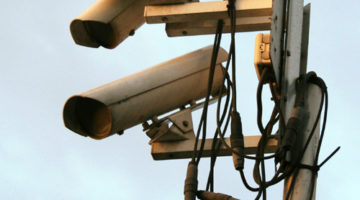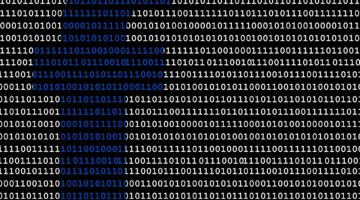By Gabby Denne
On June 5, 2013, light was shed on classified domestic telephone surveillance when former National Security Agency contractor, Edward Snowden leaked classified documents detailing the description of the United States’ dragnet collection of phone record metadata.
Metadata, which the U.S. government began collecting in 2001, is defined as data used to describe other data. President Barack Obama made it clear in his State of the Union speech that the domestic surveillance conducted “does not involve the content of phone calls or the names of people making calls. Instead, it provides a record of phone numbers and the times and length of calls.”
The collection of metadata came about from a provision in the Foreign Intelligence Surveillance Act, which allows the Federal Bureau of Investigation to collect items relevant to a counterterrorism investigation and “identify communications among known and unknown terrorism suspects.” In 2001, under President George W. Bush, an expansion of the provision under Section 215 of the Patriot Act allowed the government to collect “any tangible things (including books, records, papers, documents, and other items) for an investigation to protect against international terrorism or clandestine intelligence activities.” In an effort following the 9/11 terrorist attacks, the Foreign Intelligence Surveillance court authorized the NSA to collect all call detail records obtained by various telephone companies in the United States, according to the Privacy and Civil Liberties Oversight Board in its Report on the Telephone Records Program.
Metadata, though it does not include the content of calls, can allow those who have access to it to use it to make inferences about more extensive data, therefore creating the potential for a breach in personal privacy.
George Bebis, professor and chair of the Computer Science and Engineering department, noted that even basic metadata has been used to reveal sensitive information.
Bebis recalls the 2009 Doe vs. Netflix Supreme Court case in which Netflix disclosed the subscriber information of 500,000 users to participants in a contest the company held in order to improve the algorithm the company used for its movie recommendations.
The information included but was not limited to the movie rentals and ratings of subscribers. Shortly thereafter, two student researchers from the University of Texas at Austin found in their research that the data Netflix had released was enough to identify people despite the data being anonymous.
The students, Arvind Narayanan and Vitaly Shmatikov, formed an algorithm to analyze the provided information by combining movie ratings from users on the Internet Movie Database in order to strip the individuals of their anonymity.
“If you have a sufficient amount of data and sophisticated methods to look at data from different points of view and interrelate and correlate data, you might be able to infer information which should be protected,” Bebis said.
Some make the case that the NSA’s collection of metadata such as telephone records is perfectly legal. Judge William Pauley, who ruled that the program was legal, cited the third-party doctrine, which acknowledges that information that an individual voluntarily discloses to a third party is not protected under the Fourth Amendment.
Because an individual is aware that their phone records are given to a telephone company, the third-party doctrine assumes that the individual has no reasonable expectation of privacy, thus making the metadata collection program legal.
Similarly, Dianne Feinstein, chair of the Senate Select Committee on Intelligence, said in defense of the program, “Our courts have consistently recognized that there is no reasonable expectation of privacy in this type of metadata information and thus no search warrant is required to obtain it.”
Despite the Supreme Court’s definition of a reasonable expectation of privacy, data shows that Americans do feel they have the right to privacy. A recent USA Today/Pew Research Center Poll shows that 70 percent of Americans say “they shouldn’t have to give up privacy and freedom in order to be safe from terrorism.”
While the NSA has been authorized to collect the sort of data that could potentially lead to conclusions about other data, law enforcement at the state level for Nevada requires a warrant to collect said data.
A training manual for the Reno Police Department states that obtaining phone records without a warrant is only permitted in life threatening emergencies, and notes that it has been “misused to locate phones stolen in robberies and burglaries as well as suspects in such cases. Some cell carriers have been complying with such requests, but they cannot be expected to continue to do so as it is outside the scope of the law. Continued misuse by law enforcement agencies will undoubtedly backfire.”
“Any time we’re going to obtain phone record information or what we call a wiretap to listen to a phone conversation, we have to have a warrant,” said UNRPD Commander, Todd Renwick. “It is considered a seizure under the Fourth Amendment. That’s what protects you as a citizen or even me as a citizen. It protects against unlawful searches and seizures.”
While documents like that of the RPD training manual suggest that this type of surveillance is obtrusive, others claim that the trade-off between privacy and security is necessary.
The PCLOB claims that the collection of metadata is in fact unreasonable. The PCLOB argues that the government’s claim that “the calling records being sought are relevant to all of the investigations cited in its applications” contradicts “the statutory requirement that items obtained through a Section 215 order be sought for ‘an investigation,’ not for the purpose of enhancing the government’s counterterrorism capabilities generally,” also noting that Section 215 specifically allows for the collection of data by the FBI, not the NSA.
The report warns of a snowball effect with widespread collection of data, noting that to claim that all telephone records being sought are relevant to the government’s counterterrorism efforts because terrorists use phone calls to plan their attacks is to claim that information concerning their other transactions is also relevant: They also write emails, use debit and credit cards, rent vehicles, book hotel rooms and visit websites. “This elastic definition of relevance… supplies a license for nearly unlimited governmental acquisitions of other kinds of transactional information.”
On February 6, the FISA court announced the approval of President Barack Obama’s request to change how metadata is collected under Section 215. The NSA will now have to go before a judge to present evidence for reasonable suspicion before querying it, despite recommendations from the PCLOB and The President’s Review Group on Intelligence and Communications Technologies to end such storage.











